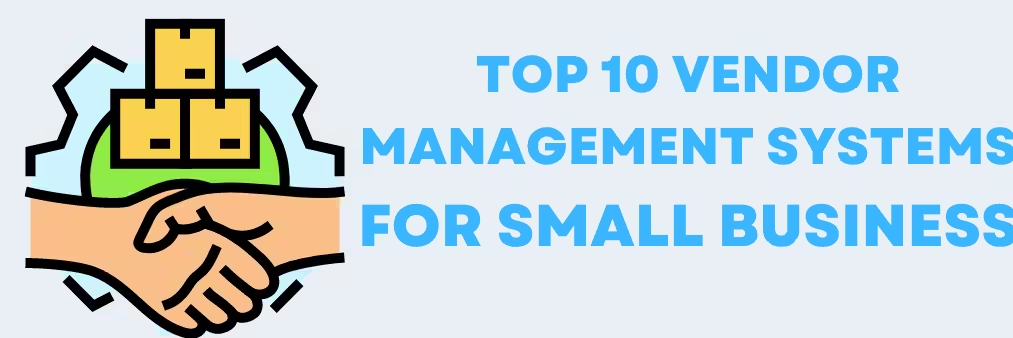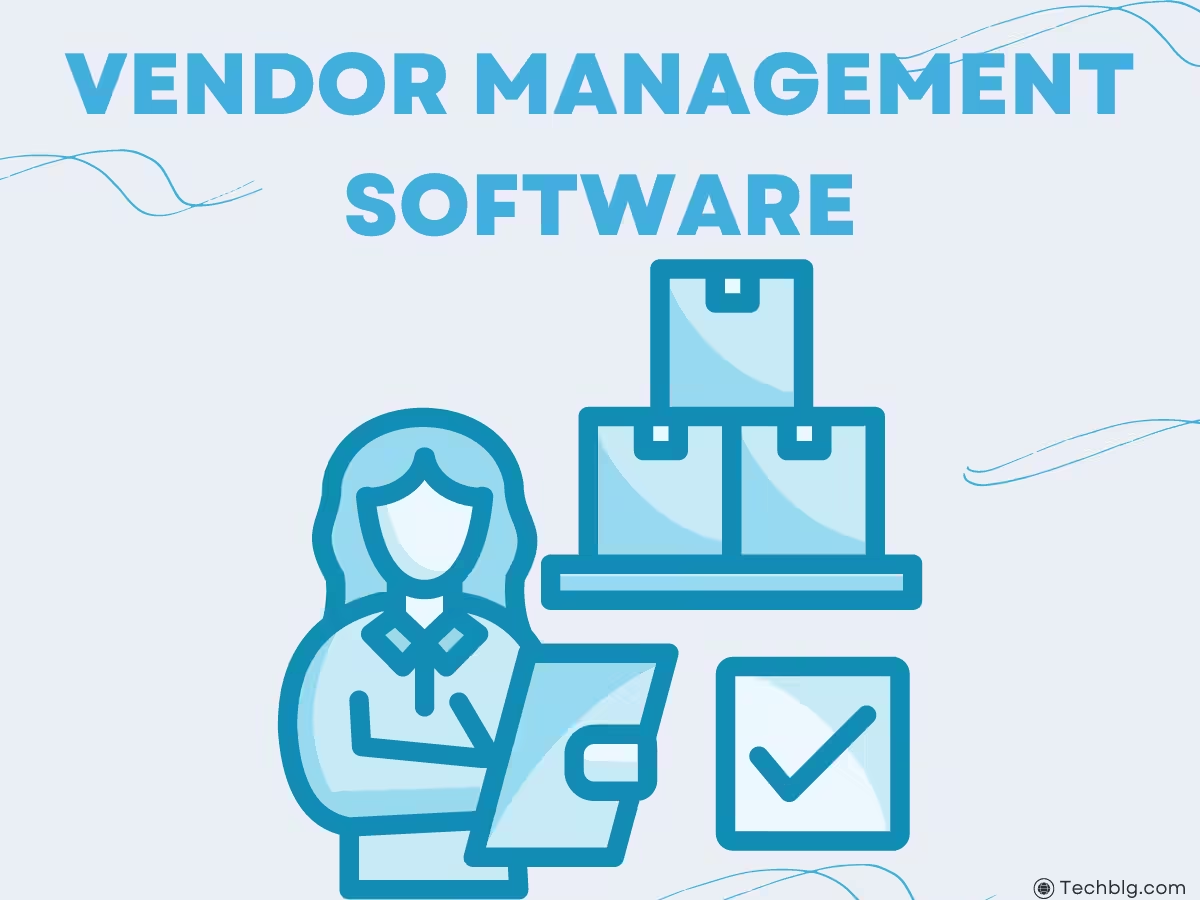Introduction: Understanding Vendor Management Systems
managing vendors efficiently is crucial for operational success and a streamlined supply chain. The Top 10 vendor management systems are designed to help businesses improve their vendor sourcing, oversight, and relationship management. As businesses grow, handling multiple vendors manually becomes inefficient, leading to increased errors and decreased productivity. By leveraging a Vendor Management System (VMS), companies can automate vendor interactions, reduce risks, improve compliance, and enhance overall efficiency. This article delves into the best VMS solutions, evaluating their key features, pricing models, and the pros and cons, ensuring you find the most suitable tool for your specific needs.
Whether you run a small business or an enterprise-level organization, choosing the right VMS is critical to maintaining strong supplier relationships and avoiding costly delays or mistakes. Additionally, vendor management systems help enforce compliance, manage contracts, and keep track of vendor performance, which is essential in ensuring product quality and service standards are consistently met. From automation to cost control and better risk mitigation, VMS platforms are now indispensable for any organization dealing with multiple suppliers.
In this guide, we’ll review the Top 10 vendor management systems, offering detailed descriptions of their features, capabilities, and ideal use cases. By understanding the offerings of these systems, you’ll be better equipped to select the best vendor management software for your business.

Top 10 vendor management systems
1. SAP Fieldglass
Overview:
SAP Fieldglass is a cloud-based VMS designed for businesses that want complete transparency in their vendor management processes. Its capabilities extend to workforce management, contingent workforce tracking, and procurement.
Key Features:
- Vendor performance tracking
- Workforce management
- Real-time analytics
- Integration with other SAP modules
Pricing: Available upon request.
Pros:
- Comprehensive solution for vendor and workforce management
- Robust integration with SAP ecosystem
Cons: - Expensive for small businesses
- Steep learning curve
2. IBM Emptoris
Overview:
IBM Emptoris is a popular vendor management software designed for global procurement. It helps businesses manage supplier relationships by offering sourcing and procurement tools in a cloud-based solution.
Key Features:
- Contract management
- Real-time vendor tracking
- Procurement analytics
- Risk management
Pricing: Custom pricing based on business needs.
Pros:
- Strong focus on procurement
- Advanced risk management features
Cons: - Customization can be complex
- Limited support for smaller organizations
3. Oracle Procurement Cloud
Overview:
Oracle’s Procurement Cloud offers vendor management along with procurement and sourcing tools, providing a scalable solution for both small and large enterprises.
Key Features:
- Vendor sourcing and procurement
- Analytics and reporting tools
- Integrated contract management
- Automation of procurement tasks
Pricing: Custom pricing based on the number of users and services.
Pros:
- Scalable for businesses of all sizes
- Highly customizable
Cons: - Requires extensive onboarding
- Complex for first-time users
4. Coupa
Overview:
Coupa’s cloud-based VMS is ideal for businesses looking to manage their vendors while controlling costs and improving efficiency. Coupa offers a comprehensive platform for procurement, invoicing, and expense management.
Key Features:
- Vendor invoicing
- Spend analysis
- Supplier collaboration tools
- Real-time reporting
Pricing: Available upon request.
Pros:
- Highly intuitive user interface
- Comprehensive spend management features
Cons: - Pricing may be steep for smaller businesses
- Some users report issues with customer support
5. GEP SMART
Overview:
GEP SMART is an AI-powered vendor management platform focused on optimizing procurement processes. It’s designed for businesses looking to leverage automation in vendor relationships.
Key Features:
- AI-driven vendor management
- Procurement automation
- Contract management
- Data-driven insights
Pricing: Contact GEP for custom pricing.
Pros:
- Advanced AI capabilities
- Comprehensive procurement tools
Cons: - May require additional customization
- AI tools can be overwhelming for new users
6. Beeline VMS
Overview:
Beeline is a well-known vendor management system focused on workforce management, making it ideal for businesses dealing with contingent and temporary staffing needs.
Key Features:
- Contingent workforce management
- Supplier performance tracking
- Custom reporting and analytics
- Global compliance features
Pricing: Custom pricing based on services required.
Pros:
- Excellent for contingent workforce management
- Strong compliance tools
Cons: - Limited scalability for non-workforce needs
- Pricing can be high
7. Jaggaer
Overview:
Jaggaer is a cloud-based procurement and vendor management solution that offers robust features for supplier management and procurement optimization.
Key Features:
- Supplier performance management
- Procurement lifecycle tracking
- Spend analysis tools
- Global compliance management
Pricing: Contact Jaggaer for pricing details.
Pros:
- Easy integration with other procurement tools
- Strong spend management features
Cons: - Requires thorough training for effective use
- Customization can be challenging
8. SynerTrade
Overview:
SynerTrade provides a comprehensive VMS with tools for managing the entire procurement cycle. It is a popular choice for companies looking for a highly customizable solution.
Key Features:
- Vendor sourcing and onboarding
- Procurement management
- Contract lifecycle management
- Customizable dashboards
Pricing: Custom pricing available.
Pros:
- Easy-to-use interface
- Extensive customization options
Cons: - Steep learning curve for advanced features
- Limited out-of-the-box integrations
9. Ivalua
Overview:
Ivalua offers a complete vendor and procurement management solution that emphasizes supplier collaboration and risk management.
Key Features:
- Supplier collaboration tools
- Spend management
- Risk and performance management
- Contract management
Pricing: Pricing upon request.
Pros:
- Strong supplier collaboration features
- Robust risk management tools
Cons: - Complex for new users
- Expensive for smaller businesses
10. Zoho Creator
Overview:
Zoho Creator offers a flexible VMS solution that can be easily customized for different business needs. With its low-code development environment, businesses can build and modify workflows.
Key Features:
- Customizable vendor management workflows
- Data analytics and reporting
- API integrations
- Vendor performance tracking
Pricing: Starts at $10 per user per month.
Pros:
- Highly customizable
- Affordable for small businesses
Cons: - Limited advanced procurement features
- Requires some technical knowledge for customization
Comparison Table: Pros & Cons
| Software | Pros | Cons |
|---|---|---|
| SAP Fieldglass | Comprehensive solution, SAP integration | Expensive, steep learning curve |
| IBM Emptoris | Strong procurement focus, risk management | Complex customization, limited for SMBs |
| Oracle Procurement Cloud | Scalable, customizable | Complex onboarding, steep for beginners |
| Coupa | User-friendly, spend management | Expensive, support issues |
| GEP SMART | AI-powered, data insights | Overwhelming AI tools, high customization |
| Beeline VMS | Excellent for workforce management | Limited scalability, high cost |
| Jaggaer | Easy integration, spend analysis | Requires training, challenging customization |
| SynerTrade | User-friendly, customizable | Steep learning curve, limited integrations |
| Ivalua | Supplier collaboration, risk management | Complex setup, high pricing |
| Zoho Creator | Customizable, affordable | Limited features, requires technical skills |
Conclusion
Choosing the Top 10 Vendor Management Systems depends on your business needs, budget, and the complexity of vendor relationships. By leveraging these systems, businesses can enhance vendor relationships, streamline procurement processes, and reduce risks. Solutions like SAP Fieldglass and Coupa provide comprehensive tools for large enterprises, while Zoho Creator offers flexibility and affordability for smaller businesses.
For businesses just getting started, you might want to read more about Best POS System for Small Business and Best Supply Chain Management Software to ensure all aspects of your business operations are covered effectively.
how to link vendor management system to erp software
References
- SAP Fieldglass – Official Website
- IBM Emptoris – IBM Procurement
- Oracle Procurement Cloud – Oracle Official
- Coupa – Coupa Procurement
- Zoho Creator – Zoho Official

Leave a Reply